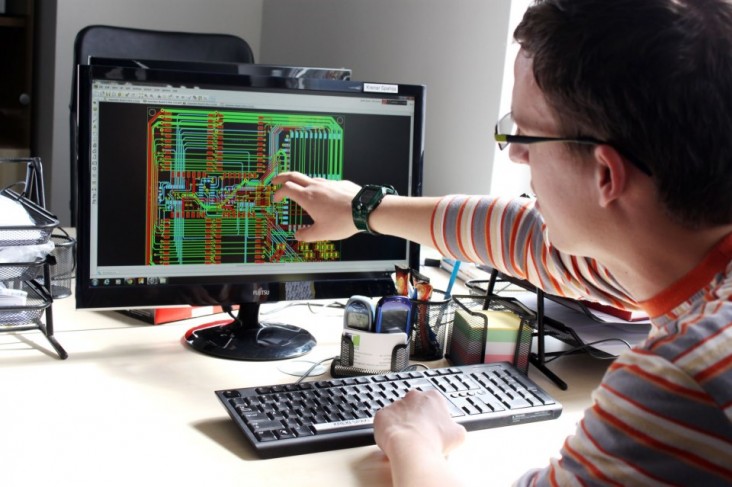
The ordered tangle of blue, green and red lines on Krenar Spahija’s computer screen may well map out the way to a prosperous future for Kosovo, this small country in Southeastern Europe.
The engineer’s design for a printed circuit board provides a glimpse of a high-tech product being made in a country with a largely low-tech economy. It’s just one way that Spahija’s employer, Pristina-based Tekfuze, bucks expectations.
Founded in 2011, Tekfuze employs 22 people in the design and assembly of embedded controls—the electronics that perform specific tasks within larger machines. Its products are put together Lego-like, following a modular approach that allows for mixing and matching hardware components.
“It’s a matter of selecting the modules you need and then customizing the software, so it’s as if the hardware goes away,” says co-founder Edi Bunjaku.
USAID helped Tekfuze get off the ground, providing early-on intensive employee training that helped the company take an inclusive approach to gender. Today, women dominate its engineering staff, marking another way the dynamic firm stands apart.
In summer 2012, USAID helped Tekfuze purchase two pieces of equipment to allow for volume manufacturing. Tekfuze manufactures only one finished product—a fuel sensor that is incorporated into the GPS units used to track fleets of trucks. The tiny sensor monitors fuel levels and consumption. A regional fleet management systems provider from Lithuania is now evaluating the sensor for possible purchase, which Tekfuze sells domestically.
But aside from manufacturing the fuel sensor, Tekfuze is now focusing on designing and assembling low-volume but high-margin industrial products, including a controller for pellet-fired boilers.
“Our approach is unique. No one else in Kosovo is doing what we are,” Bunjaku says, referring to the company's move from high-volume manufacturing.
Even with a young, skilled and motivated workforce, Tekfuze knows it cannot compete in creating consumer electronics for the mass market. Where many electronic firms in developing countries zig, by manufacturing only, Tekfuze zags, by focusing on lucrative design work, too.
Tekfuze is one of the companies that have benefited from USAID’s Young Entrepreneurs Program, which ran from September 2010 through September 2013, and was designed to assist Kosovo’s new and emerging entrepreneurs, ages 18–35.







Comment
Make a general inquiry or suggest an improvement.